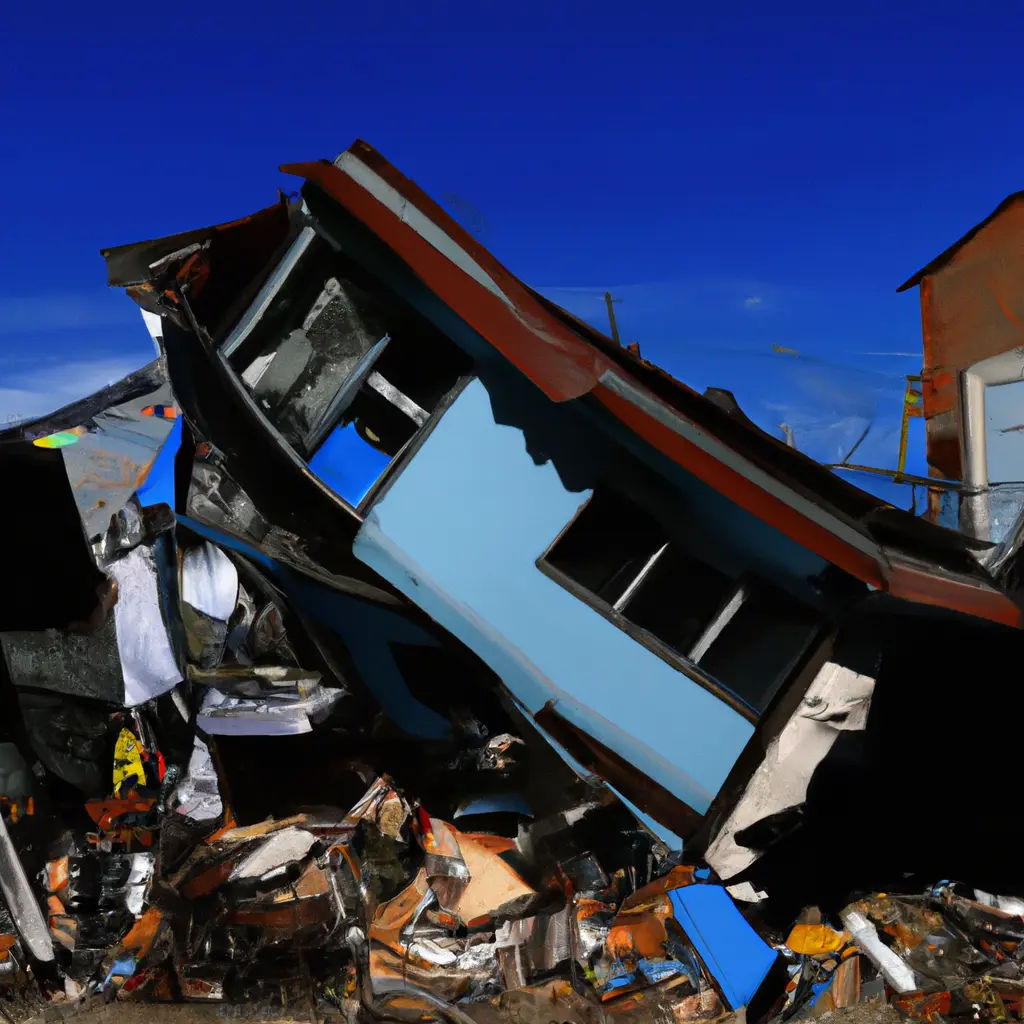In the aftermath of the earthquake, Istanbul was gripped by fear of an even bigger disaster to come

More than 50,000 people were killed in February's earthquake in Istanbul. The city lies near a fault line in northwestern Turkey. The city's five million residents live in dangerous homes. Applications to rebuild homes have skyrocketed since the quake. Many people feel trapped by rising rental prices.
Deadliest earthquake in modern Turkish history
has revived fears that Istanbul is an even bigger disaster to come. Hundreds of thousands of people are rushing to find safe housing. Official figures show that 5 million of the 16 million residents of Turkey's largest city live in dangerous homes because it lies north of a fault line that crosses the Marmara Sea in the northwestern part of the country.
Ever since the February earthquake that shook the southeast, in which more than 50,000 people died, the city has been gripped by anxiety and revived memories of the 1999 quake that killed 17,000 people in the region. Tens of thousands of buildings collapsed in the February quake, with accusations arising that inadequate building standards in Turkey generally contributed to the disaster, as well as concerns about the reliability of many older buildings in Istanbul.
Demolition and reconstruction applications for dangerous homes in Istanbul, where about 500,000 people live, have tripled since the earthquake. The surge in demand has also led to a sharp rise in rental housing prices, which were already very high.
"I was aware of the risk in Istanbul, but when there was such a big earthquake, it started to seem more real and I got anxieties," said Sevgi Demiray, 25, whose uncle and friends were killed in the quake in the southern city of Antakya. Fear of another tragedy forced her to leave Istanbul because she could not afford a new apartment there. Similar fears arose after the 1999 earthquake, but they subsided over time.
It is unclear how many people have left Istanbul in the past two months. Ali Ayılmazdır, head of the relocation association, said 15-20 people are now contacting companies every day asking to relocate, compared with 3-5 before the February earthquake.
The concern for safe housing comes ahead of the May 14 elections, which are seen as the biggest political challenge for President Tayyip Erdogan in his two decades in power.
A magnitude 7.5 earthquake like the one in February could cause moderate damage to at least 17% of the 1.17 million buildings in Istanbul, which straddles the Bosphorus Strait that separates Europe and Asia, according to a 2019 report by seismologists.
14 May 2025
14 May 2025
Many residents say they feel trapped by a cost-of-living crisis, caused by inflation rising to 85% in October and reduced job opportunities elsewhere. Any disaster in Istanbul would severely damage Turkey's economy, given that the Marmara region provides about 41% of the country's GDP.
Nilay, a graduate student and new mother, tries to leave but feels trapped because her husband's job in finance requires staying in the city and safe neighborhoods are beyond their affordability.
“It's impossible to move to areas that are considered more secure because of the price increase after the earthquake,” said Nilay, who lives in the high-risk Avcılar neighborhood near the Marmara Sea.
According to the Bahçeşehir University Center for Economic and Social Research (BETAM), Turkish rental prices rose 190% in February compared to last year, and rental prices in Istanbul rose 138%, well above consumer price inflation of 55% in February.
Many of those who cannot relocate are instead requesting a survey to determine the safety of their buildings. About 70 percent of the buildings were built before building codes were tightened in 2000. According to Urban Planning Minister Murat Kurum, about 1.5 million homes in the city are believed to be at risk. According to official figures, an average of more than three people live in each dwelling, which means that up to 5 million people live in these properties.
Istanbul Municipality's housing agency KIPTAS said it has received applications for demolition and reconstruction at a cost of 490,000 houses. This amounts to 25,000 applications, up from 8,600 before the earthquake. However, only 200 applications are under construction, as the consent of at least two-thirds of the building's residents is needed to start the project, KIPTAS said.
“Unfortunately, the fear of the last earthquake was not enough to make people compromise and agree to rebuild their homes,” said KIPTAS CEO Ali Kurth. “People need to realize that their homes are at risk.”
More than 150,000 applications have also been submitted to the municipality requesting building safety assessments, and it will take about a year to process these applications. However, many people are held back by fear of what these tests will show.
“This old building won't get high marks. There is no need to see it on paper,” said 76-year-old Noorten, a retired woman living on the Asian side of Istanbul. “What if I am asked to leave my property afterward? I can't deal with that.”
Comment
Popular Posts
Popular Offers

Subscribe to the newsletter from Hatamatata.com!
Subscribe to the newsletter from Hatamatata.com!
I agree to the processing of personal data and confidentiality rules of Hatamatata














